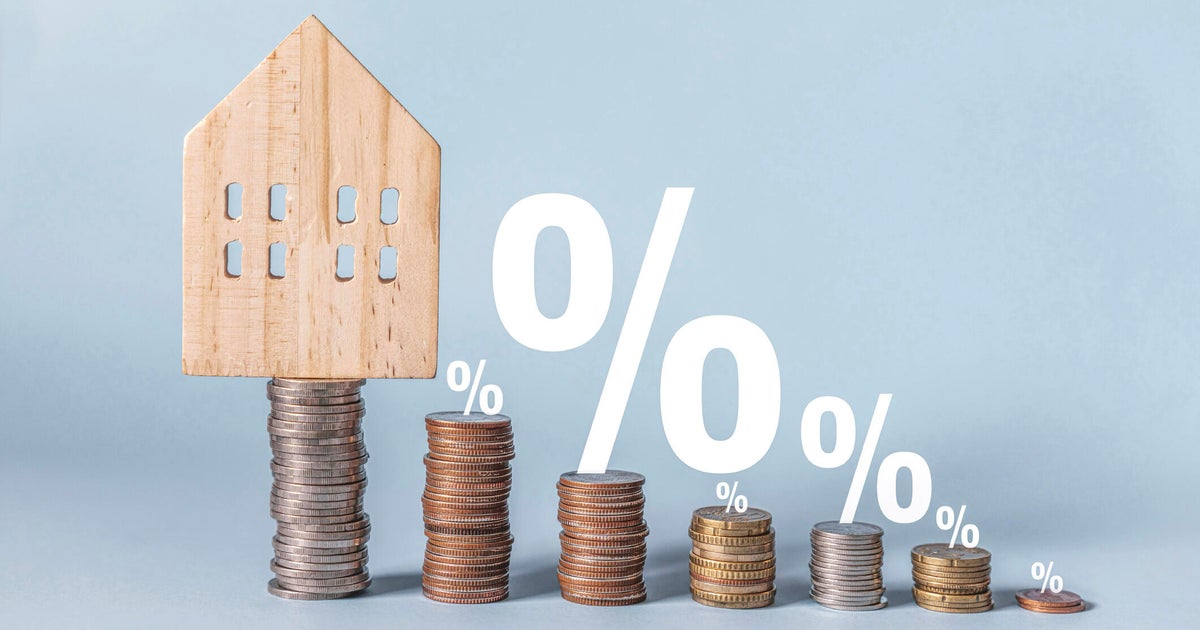8 creative ways to use your home equity during retirement
Retirement can come with a wide range of opportunities and challenges, especially in terms of managing your finances. One complicating factor for many retirees is that their home represents a substantial portion of their wealth, which is often locked away in the form of home equity.
But the good news is that there are smart ways to tap into your home's equity during retirement. For example, you can leverage this equity through borrowing tools like a home equity loan, home equity line of credit (HELOC) or a cash-out refinance. While each option has its pros and cons, the right home equity lending product can provide financial flexibility during retirement.
And, what's great about tapping into your home equity during retirement is that you can use the funds for all sorts of purposes, from home improvements and repairs to debt consolidation. But what are the more creative or unique uses for home equity funds during your retirement years?
Compare your top home equity lending options online now.
8 creative ways to use your home equity during retirement
If you're thinking about tapping into your home equity during retirement, here are a few interesting uses to consider:
Finance home renovations that create supplementary income
One of the most popular uses for home equity borrowing is financing renovations to your primary residence. And, while you can certainly use the money from your home equity for renovations like upgrading an outdated kitchen or bathroom, you can also use the money to make renovations that create supplementary income during retirement.
For example, you can use your home's equity to finance the build of an accessory dwelling unit (ADU) that you rent out to a long-term tenant (or a shorter-term tenant, like a travel nurse). That would allow you to earn extra income and potentially recoup some or all of the money you paid for the construction of the ADU. Or, if you live in an area that's a popular vacation spot, you could renovate a basement space into a separate apartment that caters to short-term vacation renters.
Explore the best home equity loan rates available to you today.
Purchase a vacation home
If you want to purchase a beach house or mountain cabin during retirement, you may be trying to determine how to finance that purchase. And, your home equity funds could be key. By borrowing from your home equity at a low rate, you could get access to the funds you need for a down payment or to cover the entire purchase cost of a vacation property.
And, if you don't plan to live in the home full time, you could also use that property for a stream of passive income by renting it out on a short-term basis (provided that local regulations allow it).
Invest for tax-advantaged growth
It may also make sense to invest your home equity funds into vehicles like real estate, tax-advantaged accounts or even securities to increase your net worth faster than you could by leaving your home equity untapped. This option is a little riskier, of course, so it's important to ensure that the possible benefits of doing so outweigh the possible downsides. But if you have a strategic plan in place for your investments, it could pay off to take this route.
Start a business
Many aspiring entrepreneurs will launch their own businesses later in life — and, in particular, after retiring from a career. But if you're retired and on a fixed income, you may not have the funds on hand to do so. You may have the home equity, though.
And tapping into your home equity could provide the seed funding necessary to start a new company or purchase an existing small business. Whether it's opening a small boutique, launching an online store or investing in a franchise, your home equity funds could help cover the costs of entrepreneurial pursuits without tapping into retirement savings.
Assist family members
Your home equity can also be a source of borrowing when you want to support your loved ones financially. For example, you may want to help a child with a down payment on their first home, and borrowing from your home's equity at a low rate can make it possible to do that. Or, perhaps you want to pay for a grandchild's education or lend a hand in times of need. In all these cases, home equity borrowing can be a way for retirees to support loved ones financially.
Fund long-term care
Nearly 70% of people ages 65 and older will require some form of long-term care later in their lives, and this type of care can be extremely costly. For example, it can cost tens of thousands of dollars or more per year to receive care at home from a home health aide, and a private room in a nursing home could come with an even higher price tag.
In turn, the costs of long-term care in your later years can rapidly deplete even a well-funded retirement account. But accessing your home equity could help you cover the costs of in-home care, assisted living or nursing home stays if or when you need this type of care.
Create a multigenerational living space
With changing family dynamics, multigenerational living is becoming increasingly more popular. And, you can use your home equity to convert part of your home into a separate living space for adult children, aging parents or extended family members. This allows for greater closeness, shared expenses and mutual support while preserving everyone's privacy and independence.
Invest in sustainable living
If you're an environmentally-conscious retiree, leveraging your home equity to invest in sustainable living initiatives can be both rewarding and impactful. For example, you could use the money from your home's equity to install solar panels, upgrade to energy-efficient appliances or implement eco-friendly landscaping. Not only does this enhance your home's value, but it also reduces your carbon footprint and lowers utility bills, resulting in long-term savings and environmental benefits.
The bottom line
There are lots of good ways to use your home equity creatively during retirement, whether you want to create a new stream of income by funding an ADU, purchase a vacation home to be used by you, your friends and family or upgrade your home with eco-friendly features. But regardless of the purpose, using your home equity during retirement requires careful consideration of the risks such as going into debt later in life and the impact on one's overall financial plan. So just be sure to do the math, weigh your other options and ensure that any home equity borrowing makes sense for your finances.




